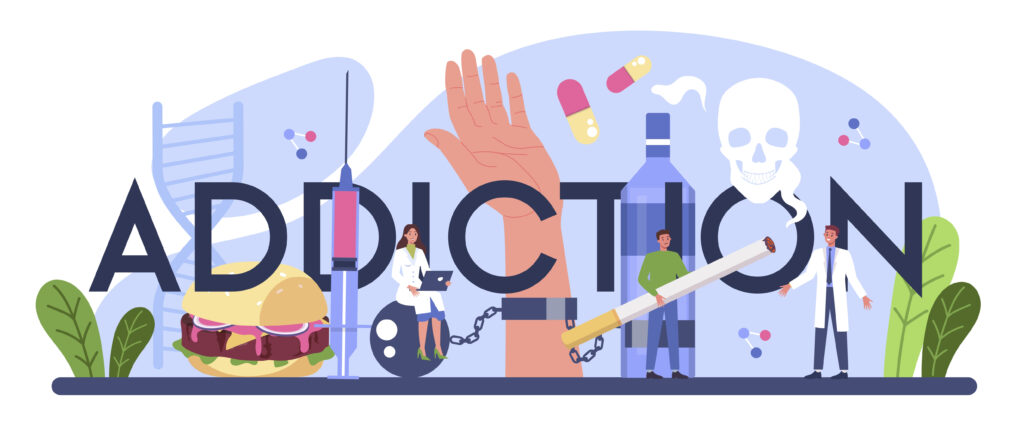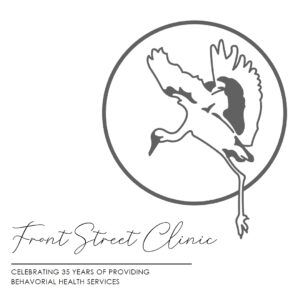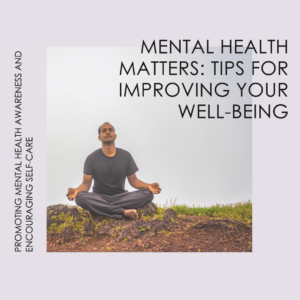
Certainly, this is a straightforward question. I wish the answer could be just as direct and simple. I’m coming up on twenty years as a Chemical Dependency Professional, and in that time the answer may have gotten harder rather than easier. The more we understand of this baffling condition the more complex it turns out to be. Yet untreated addictions can stand in the way of any attempt to solve other psychological problems, so it is essential that the question be asked, and that your counselor have a practical and meaningful way to answer it. I want to explain some of what makes the subject confusing, and then one approach to cutting through the fog.
First of all, the word addiction has been in general usage for a long time. Even before it developed its modern meaning of being enslaved by a behavior it was already used in both positive and negative ways, and that is still true. Advertisers talk about their products as being addictive, and make it sound like a good thing. I have heard exercise referred to as a “healthy addiction.” Ask a dozen people what they think the word means and you’ll get a dozen different answers. Some people see addiction everywhere. Others deny it even exists.
Professionals who treat people for addiction have tried to overcome this by defining the word with more scientific precision. How’s this for trying to jam the colloquial toothpaste back in the tube? The American Society of Addiction Medicine cobbled together this monstrosity: “Addiction is characterized by inability to consistently abstain, impairment in behavioral control, craving, diminished recognition of significant problems with one’s behaviors and interpersonal relationships, and a dysfunctional emotional response.”
That helps people who are trained in the language of behavioral medicine to understand some of the complexities of what the word incorporates, and how to detect it in a person with reasonable consistency. But that doesn’t benefit the average lay person, who loses the thread in all that technical jargon. It doesn’t help the person who comes in wondering whether their drinking or drug use is “a problem.”
Ah. That simple little phrase, and the corollary phrase “problem drinking,” I have found, are a powerful lens for looking at what people are really asking. Has your drug use (remember, alcohol too is a drug) started to cause problems in your life? If it has, how serious are they? If they are serious, why not stop? If you have tried to do that and found it difficult, now you’re getting to the heart of what addiction is. Simple questions like these save hours of explaining ASAM’s stilted language and figuring out how it applies. When I work with someone, I want to help them answer the question in a way that they can understand, and that also fits the formal clinical definition.
People often believe that a diagnosis is like a light switch. You either have something or you don’t. Maybe that’s because our original ideas about health came from our own childhood illnesses and injuries. You either have a broken leg or you don’t, and the same can be said of a fever or the stomach flu. But even in physical medicine there are a lot of things that aren’t like that. If you have an allergy, it could be mild or severe. If you have the sniffles, you may not have a cold. Even that fever, if it isn’t too high, may say more about your personal metabolism than your current state of health.
In mental health, many of the conditions we treat exist on a spectrum. Addiction is one of those (I am continuing to use the popular word, even though in our diagnostic vocabulary we now talk about “Use Disorder,” because now you understand that consideration of an addiction can be broken down into a few simple components.) There is no bright shining line that defines where addiction starts, and no easy measurement of how far it has advanced. You aren’t addicted on Wednesday when you weren’t on Tuesday. And someone who has been clearly addicted for years sometimes has an easier time recovering than someone who shows fewer overt signs of disease. But for most of us and in most situations the problems that go with addiction start small and slowly get worse. They can continue getting worse until they are life-threatening, in a steady drip drip that often takes many years. But here’s another simple guideline: when is it time to call a plumber? As soon as you notice the leak, not after the basement is flooded. I maintain that you don’t have to be addicted to a drug before you should take a serious look at giving it up, so where you are in the progression says more about how hard it will be to quit than it does about whether to quit.
Do you think I could be addicted? What sort of problems is your drug causing or contributing to in your life? Do you want to live with those problems? If not, stop using the drug and see what happens. If life is better without the drug, why go back to using it? Maybe you’ll never know whether you were “really addicted.” And maybe you won’t even care.
Michael Dorsey



